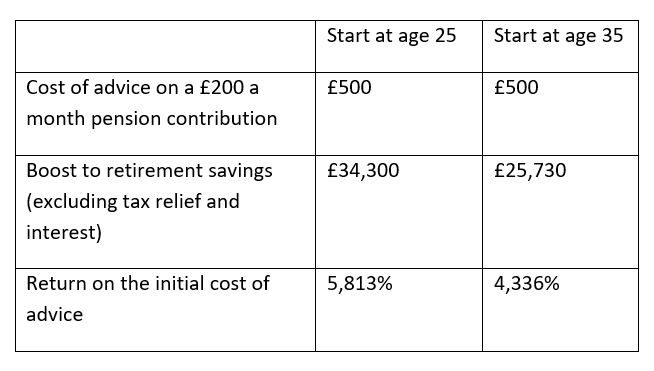While inflation is starting to ease in economies around the world, there are still signs of economic challenges ahead. Read on to find out what affected investment markets in November 2023.
UK
In November, chancellor Jeremy Hunt delivered the Autumn Statement. Despite media suggestions that Inheritance Tax would be abolished, the biggest announcement was a cut to National Insurance rates for employees and self-employed workers.
While the Autumn Statement contained 110 measures, there were few surprises and the markets remained largely unmoved.
Key figures paint a mixed picture in the UK.
On one hand, inflation fell sharply in the 12 months to October 2023 to 4.6%, compared to 6.7% in September. On the other hand, data from the Office of National Statistics show the UK economy posted zero growth in the third quarter of 2023 following growth of just 0.2% in the second quarter.
Despite inflation falling, the Bank of England (BoE) opted to leave interest rates where they are at 5.25% rather than cut them. The markets rallied at the news interest rates may have peaked – the FTSE 250 share index jumped by 3% following the BoE announcement on 2 November.
While slowing inflation is a step in the right direction, the BoE warned there was still a 50-50 chance the UK would be in a recession by mid-2024.
Figures suggest both households and businesses are struggling to service debt due to higher interest rates.
UK Finance statistics show the number of mortgages in arrears is rising. The number of mortgage holders that are behind with their repayments increased by 7% between July and September, when compared to three months earlier. This figure was partly fuelled by buy-to-let mortgages as the number of landlords falling into arrears jumped by 29% over the same period.
In October, business insolvencies were also up 18% when compared to a year earlier. The rise was linked to weak consumer demand and high interest rates.
Further figures indicate businesses across numerous sectors could be facing headwinds. S&P’s Purchasing Managers’ Index (PMI) data found:
- UK factory output has now declined for the longest period since 2008/09 and, for the 13th consecutive month, firms cut jobs.
- Optimism in the service sector fell to the lowest level so far this year and the PMI was 49.5, just below the 50 mark that indicates contraction.
- Fewer housebuilding projects were linked to construction output falling further.
The mixed picture of economic data was also reflected in company updates.
Tata Steel confirmed the closure of its steelworks in Port Talbot at the start of the month. The news followed the company’s financial reports showing the firm made a loss of £135 million between July and September.
In contrast, despite pressure on the high street, Marks & Spencer was reported to be the biggest riser on the FTSE 100 index when shares soared 7% on 8 November. The boost followed a huge 75% jump in pre-tax profits to £360 million for the 26 weeks to 30 September 2023.
Europe
The European Commission (EC) once again cut its growth forecasts for the eurozone. It now expects the economy to grow by 0.6% in 2023, compared to its earlier forecast of 0.8%. The EC said the economy had lost its momentum due to rising interest rates and the cost of living squeeze affecting household spending.
The European Central Bank (ECB) also warned that banks could face challenges. An ECB report suggests banks were showing “early signs of stress” after a rise in loan defaults and late payments.
PMI data indicates that factories across the eurozone have faced a “considerable” fall in production levels and the decline in new orders is accelerating.
While often being viewed as the powerhouse of the eurozone, Germany hasn’t escaped the slump.
There are concerns that Germany is teetering on a recession. Financial institution ING warned that the country would likely be in a technical recession by the end of 2023. Industrial output in Germany is still 7% below its pre-pandemic level thanks to weak demand.
The decision of Danish shipping giant Maersk to axe 10,000 jobs after posting a steep drop in profits highlights the challenges businesses are facing. The firm said slow global economic growth and destocking after the pandemic are affecting demands for shipping containers by sea.
US
US inflation fell at a quicker pace than expected in the 12 months to October 2023. The figure was 3.2% and slowly nearing the Federal Reserve’s 2% target.
While the inflation statistic is positive, other data from the US may signal challenges ahead for businesses.
The US economy added 150,000 jobs in October, which fell below the 180,000 economists had expected. In addition, unemployment figures increased slightly from 3.8% to 3.9% when compared to a month earlier.
Weak consumer demand is also affecting the US. The country’s trade deficit increased by almost 5% in September as it imported more goods than it exported. The goods deficit climbed by $1.7 billion (£1.4 billion) to $86.3 billion (£68.29 billion).
Some businesses are performing well though, notably Microsoft. The company’s shares reached a record high of $377.1 (£266.76) on 20 November to extend its gains for this year by more than 55%.
Contact us to talk about your investments
When investing, remember to focus on your long-term plan and goals. It could help you select investments that are right for you. If you’d like to talk about your portfolio and whether it suits your needs, please contact us.
Please note: This blog is for general information only and does not constitute advice. The information is aimed at retail clients only.
The value of your investment can go down as well as up and you may not get back the full amount you invested. Past performance is not a reliable indicator of future performance.









